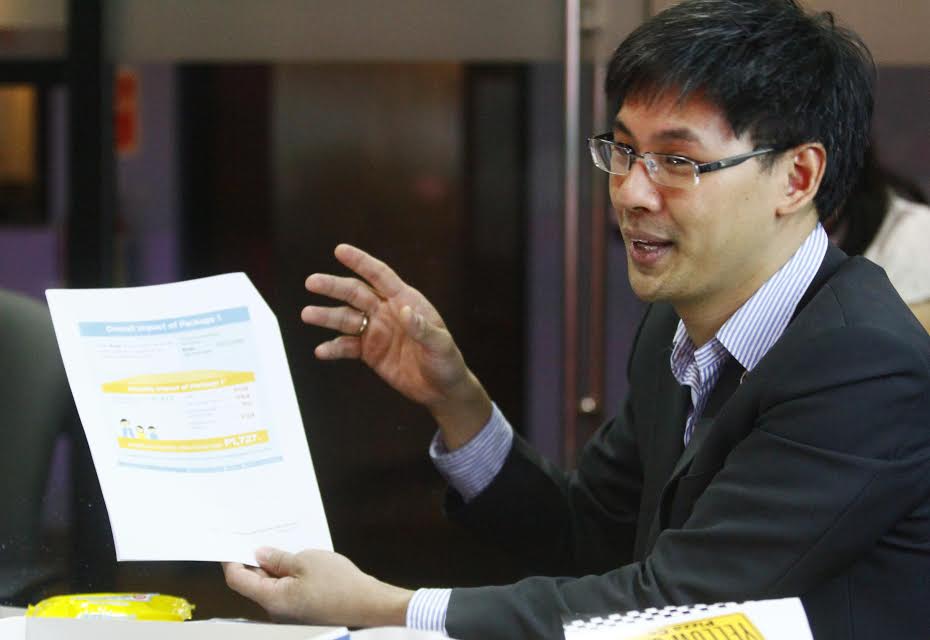MANILA – The Department of Finance of Finance (DoF) will defer submission to Congress of the second of up to five tax reform packages, as it focuses all its efforts on pushing the first tranche through the Senate and enactment in time for implementation as 2018 starts.
Finance Secretary Carlos G. Dominguez III said the DoF now aims to submit the second package to Congress in January from an earlier target of the fourth quarter of this year.
“I think we should finish the package one first before we discuss the package two. Probably we will move it three months down; so by January,” he told reporters last Friday.
“I think it is better for us to concentrate on the current issues before we discuss another one.”
All tax measures must originate from the House of Representatives, according to the constitution.
DoF had submitted its draft on the first package to Congress in September last year. A bill was filed in January, and the House approved its version at the end of May — but not before President Rodrigo R. Duterte stepped in last March as he noted that the bill had met “resistance” and “rough sailing” among lawmakers.
In the approved House Bill No. 5636, the first package — which reduces personal income tax rates while stripping some value-added tax exemptions, increases excise tax rates on oil products and automobiles, introduces an excise tax on sugar-sweetened drinks, harmonizes estate and donor’s tax rates, and provides measures improving tax administration — is estimated to generate P133.8-billion additional revenues in the first year of its implementation.
In his second state of the nation address last July, Mr. Duterte issued a veiled warning, partly in jest, on ruling party support for Senator Juan Edgardo M. Angara — who heads the Senate Ways and Means committee which has been processing the tax reform — after the president noted the senator’s apparent lack of enthusiasm when reforms were mentioned in the speech. The committee had targeted to approve the reform this month. Legislative mid-term elections will take place in 2019.
The second package will consist mainly of a cut in corporate income tax rate to 25% from 30% currently in order to encourage firms to spend more and to improve the country’s attractiveness to foreign investors by approximating the rate among its neighbors, as well as of a streamlining of fiscal incentives in order to plug revenue leaks by ensuring only sectors that need perks have them.
Mr. Dominguez said the second package will be revenue-neutral. Finance Undersecretary Karl Kendrick T. Chua had said the package will involve foregoing P500 billion from the reduction of corporate income tax rate, which will be compensated by the same amount from the withdrawal of tax holidays.

